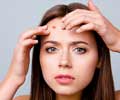A new study has revealed that women are more prone to acne than men across age groups 20 years and older.
A new study has revealed that women are more prone to acne than men across age groups 20 years and older.
Dermatologist Julie C. Harper, MD, FAAD, associate professor of dermatology at the University of Alabama in Birmingham, Ala., and her colleagues at the University of Alabama at Birmingham School of Medicine found that a significant proportion of adults continue to be plagued by acne well beyond the teenage years, especially women.The research team surveyed a random sample of men and women to determine the prevalence of persistent acne that continued after adolescence or new adult-onset acne.
A total of 1,013 men and women aged 20 years and above were asked to complete a one-page questionnaire designed to evaluate the prevalence of acne in adults across various age groups. Survey questions gauged whether the participant had ever had acne or pimples, including during their teens or later in life (in their 20s, 30s, 40s, and 50s or older).
The survey also asked participants to judge whether their acne had become better, worse or stayed the same since their teenage years.
When asked whether they had ever had a pimple or acne, a vast majority (73.3 percent) of participants responded that at one time or another they had dealt with acne.
The majority also reported that they had experienced acne as teenagers, with the number of men and women affected by the condition nearly identical, 68.5 percent of male participants and 66.8 percent of female participants.
Advertisement
The results also showed that during their 40s, 26.3 percent of women and 12 percent of men had acne, while in those above 50, 15.3 percent of women and 7.3 percent of men reported having acne.
Advertisement
Of the pre-menopausal women surveyed, 62.2 percent noted that their acne gets worse around the time of menstruation.
“Our findings demonstrate that acne is a persistent problem for people of all ages, but clearly women seem to be affected by this medical condition more than men when we examined the 20-plus age groups,” Dr. Harper said.
“Research examining the role hormones play in the development of acne may hold the key to explaining why more adult women are affected by acne and could lead to future treatments to control this condition,” she added.
Dr. Harper added that the majority of study participants reported that the severity of their acne improved after their teenage years, which is consistent with previous studies suggesting that post-adolescent acne is generally mild or moderate. For example, 63 percent of men and 53.3 percent of women stated that their acne improved after their teenage years, while only 3.6 percent of men and 13.3 percent of women reported that their acne worsened post-adolescence.
The study is published online in the Journal of the American Academy of Dermatology.
Source-ANI
GAN/C











